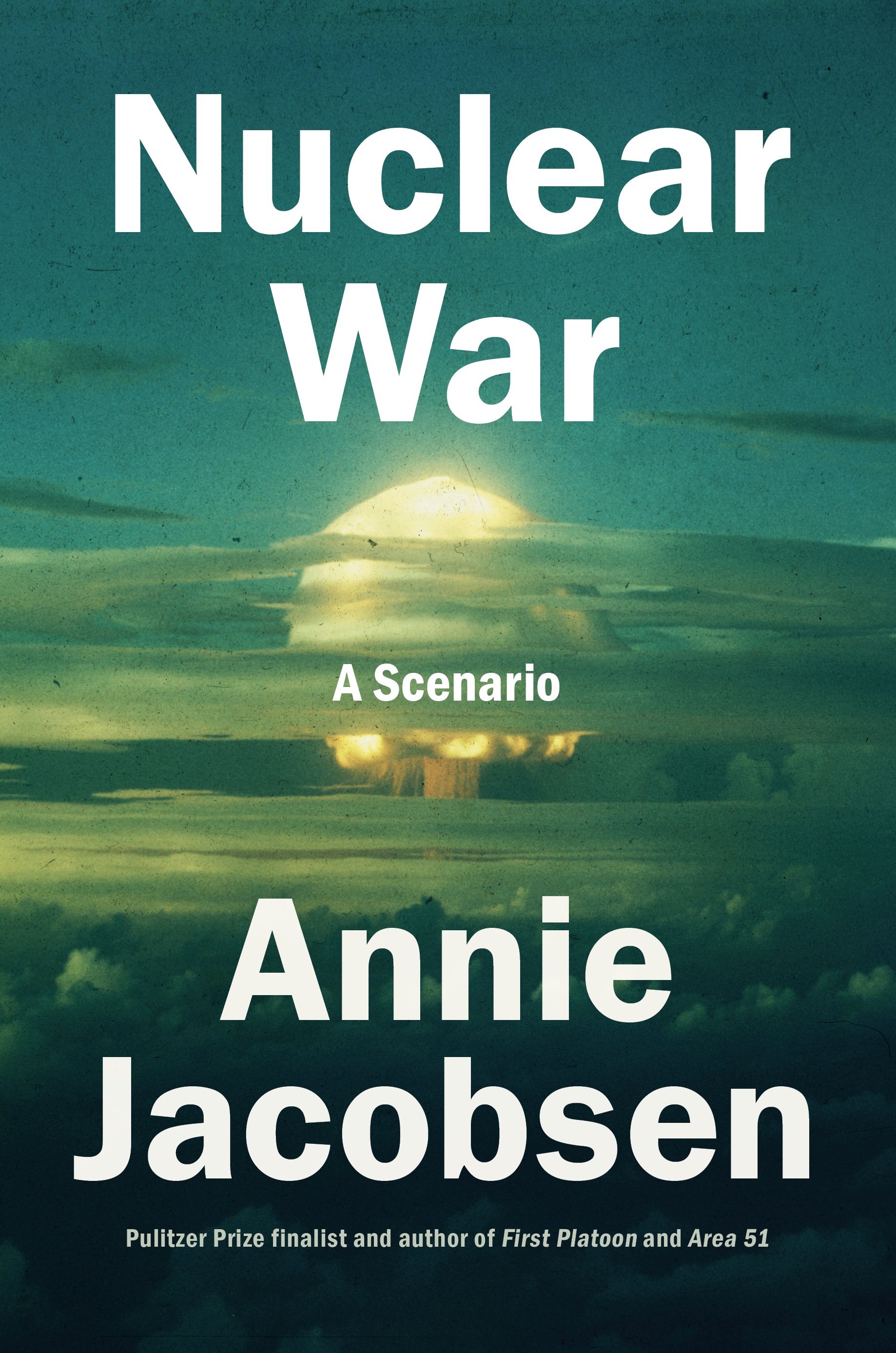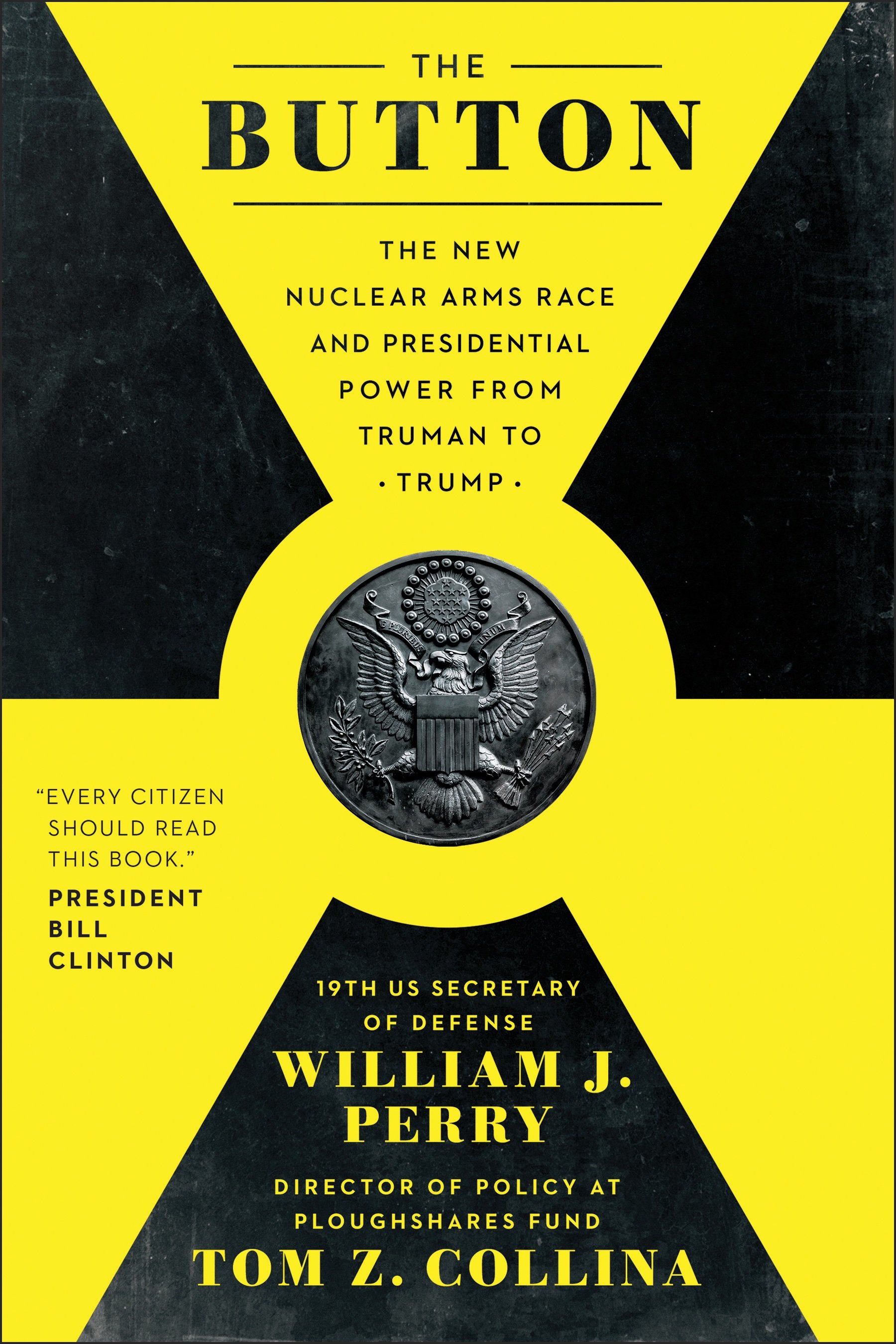There are many reasons not to vote for Donald Trump. Until this week, I wouldn’t have known where to begin. Then I read Annie Jacobsen’s Nuclear War: A Scenario (2024). It’s hands down the most terrifying book I’ve ever read, and it reminded me of how high the stakes are in the 2024 election. Though Trump appears only in the endnotes, my inescapable conclusion from reading the book is that we must never again entrust the nuclear codes to a man so erratic and morally anchorless.
In one sense, the story Jacobsen tells is nothing new. We’ve known for a long time about the danger of nuclear holocaust. When I was 12 years old, the nuclear war film The Day After (1983) affected me deeply and led me in high school to write letters to President Ronald Reagan and Soviet leader Mikhail Gorbachev pleading for a reduction in nuclear arms. At that time, the two superpowers together possessed about 70,000 nuclear weapons, the all-time high.
Fortunately for the world, Reagan and Gorbachev were sane men. Their diplomacy ultimately led to two treaties, including START I (signed by Reagan’s successor, George H. W. Bush), which limited each side to 6,000 warheads—still more than enough to destroy the world, but a crucial step toward sanity.
After the arms reduction talks of the 1980s and 1990s, new crises grabbed public attention. The 9/11 attacks and the Iraq War (predicated in part on the false claim that Iraq had nuclear weapons) dominated the headlines. More recently, resurgent culture wars over gay marriage and abortion have preoccupied many Americans.
But the risk of nuclear Armageddon didn’t go away. Today, according to Hans Kristensen and his colleagues at the Federation of American Scientists, nine countries have a total of more than 12,000 nuclear warheads. Particularly worrisome is North Korea, which doesn’t announce its nuclear tests but has launched 100 missiles since 2022. Meanwhile, relations between the United States and Russia have tanked since Vladimir Putin’s invasion of Ukraine. And if that weren’t worrisome enough, now Israel and Iran (a confirmed nuclear state and an emerging one) are trading fire over the conflict in Gaza.
A nuclear attack by North Korea on the United States is the nightmare Jacobsen imagines in her book. Jacobsen is no conspiracy theorist. She’s a respected national security journalist who interviewed dozens of top officials and combed through thousands of declassified and other documents to game out a possible scenario of the failure of nuclear deterrence.
For decades, the doctrine of Mutual Assured Destruction (MAD) ostensibly kept the peace between the nuclear powers, deterring them from launching a preemptive attack that would draw an overwhelming response. But as Jacobsen notes, MAD only works until it doesn’t—until a crazy leader or computer error or tragic misunderstanding triggers nuclear doomsday. Once an intercontinental ballistic missile (ICBM) is launched, it can’t be recalled, which leaves little room for error when a nation thinks it’s under attack. The danger is compounded by the superpowers’ “launch on warning” protocol, which gives the U.S. president sole authority to launch a counterattack when he or she believes an enemy missile is incoming.
In Jacobsen’s scenario, American intelligence correctly identifies two North Korean ICBMs headed toward the United States, prompting a massive U.S. counterattack. But Russian analysts misinterpret the radar signals from the retaliatory barrage as missiles directed at Russia. A general nuclear war ensues. Within just 72 minutes of the initial North Korean attack, 1,000 Russian warheads rain down on America as the United States unleashes a similar firestorm on Russia. Hundreds of millions of people perish. When the fires die down, nuclear winter envelops the globe. Jacobsen quotes Nikita Khrushchev: “The survivors will envy the dead.”
The scariest thing, however, is left unsaid by Jacobsen. In her telling, the American president and his advisors seem properly aware of the gravity of their responsibility and wait to launch a counterattack until the last possible minute. But what if a less levelheaded individual were president? And what if he lacked the benefit of experienced and knowledgeable advisors? Such a situation increases the possibility the president could set off a nuclear war even in the absence of a preemptive strike on the U.S.
As we face the possibility of a second Trump presidency, we must assume that his massive legal entanglements and his involvement in the January 6 insurrection will dissuade any respectable public servants from serving in his administration. If Trump returns to the White House, there will almost certainly be no grown-ups like his former defense secretary Jim Mattis or secretary of state Rex Tillerson, both of whom fell out with their boss. Trump will likely instead be surrounded by sycophants and right-wing zealots, not the sort of people one would want advising him in a crisis.
Jacobsen shows how quickly a so-called limited nuclear exchange could turn into a worldwide conflagration. But to connect the dots to the upcoming election, we should supplement her account with William J. Perry and Tom Z. Collina’s The Button: The New Nuclear Arms Race and Presidential Power from Truman to Trump (2020). Perry, a former defense secretary, and Collina, former director of policy at the Ploughshares Fund, wrote their book during the Trump administration, when they became alarmed at watching such an unsteady hand on the nuclear arsenal.
Perry and Collina believe that current U.S. nuclear protocol concentrates too much power in the president. They recommend retiring the “football” (the briefcase with launch codes accompanying the president wherever he goes) and enacting other safeguards to prevent a hair-trigger response. As they put it, there “is no justifiable need to give any president the unilateral power to end the world within minutes.” They recommend prohibiting launch on warning, which is so susceptible to false reports (including hacked ones) of a nuclear attack.
They also urge the resurrection of arms control, including saving the New START treaty (signed by President Obama), which further limited the number of American and Russian warheads. In February 2023, Vladimir Putin announced he was suspending Russia’s participation and would no longer allow NATO inspections of the country’s nuclear facilities.
Trump’s professed admiration for Putin—and his recent comment that Russia can “do whatever the hell they want” to NATO countries that don’t pay their fair share of the alliance’s costs—doesn’t bode well for holding Russia to account. Nor does his on-again, off-again relationship with North Korea’s Kim Jong Un. Though Perry and Collina supported Trump’s effort to engage with Kim diplomatically, they decried Trump’s lack of a viable negotiating strategy and his repeated sabotage of his own efforts. Case in point was Trump’s insane taunt of Kim on Twitter in January 2018 in which he boasted that “I too have a Nuclear Button, but it is a much bigger & more powerful one than his, and my Button works!”
The bottom line is that Trump is unfit to possess the nuclear button. The volatility of his personality and his lack of sound judgment have only become clearer since he left office. It’s incomprehensible folly that one of the major political parties is on the verge of nominating him again.
© 2024 by Peter J. Thuesen. All rights reserved

